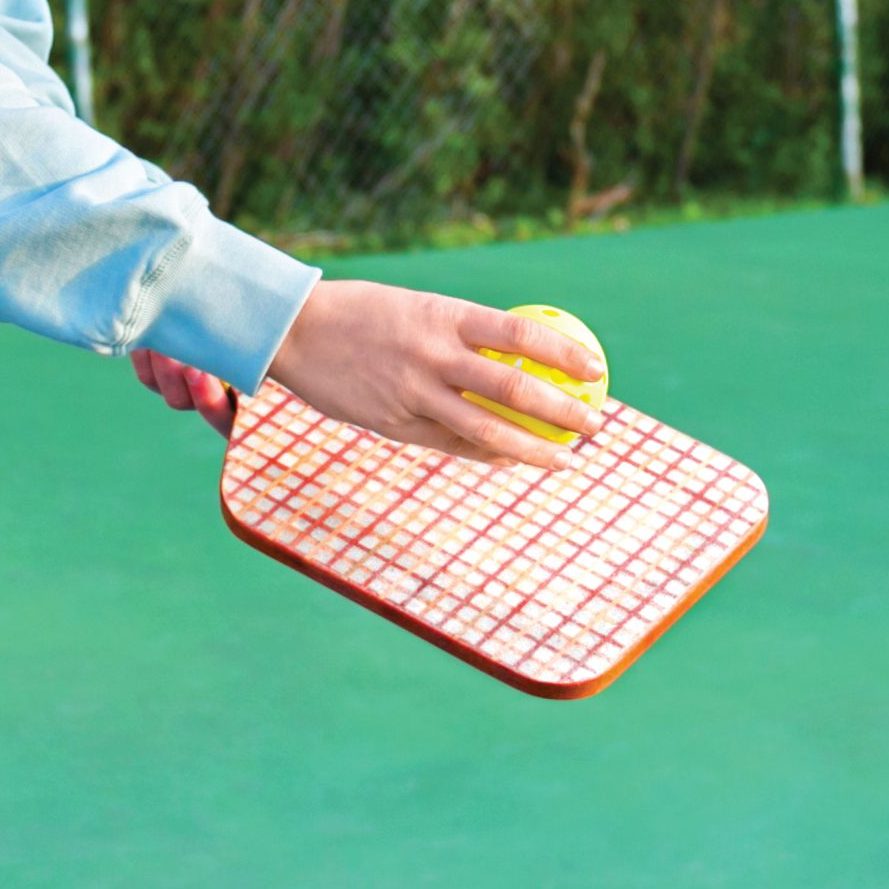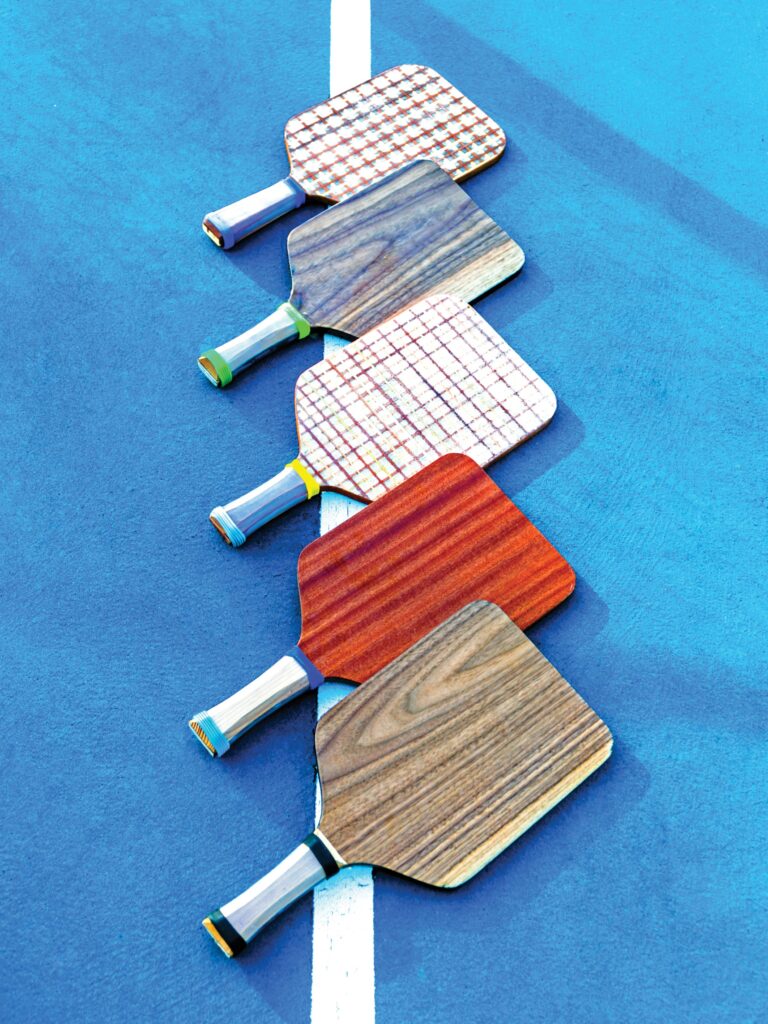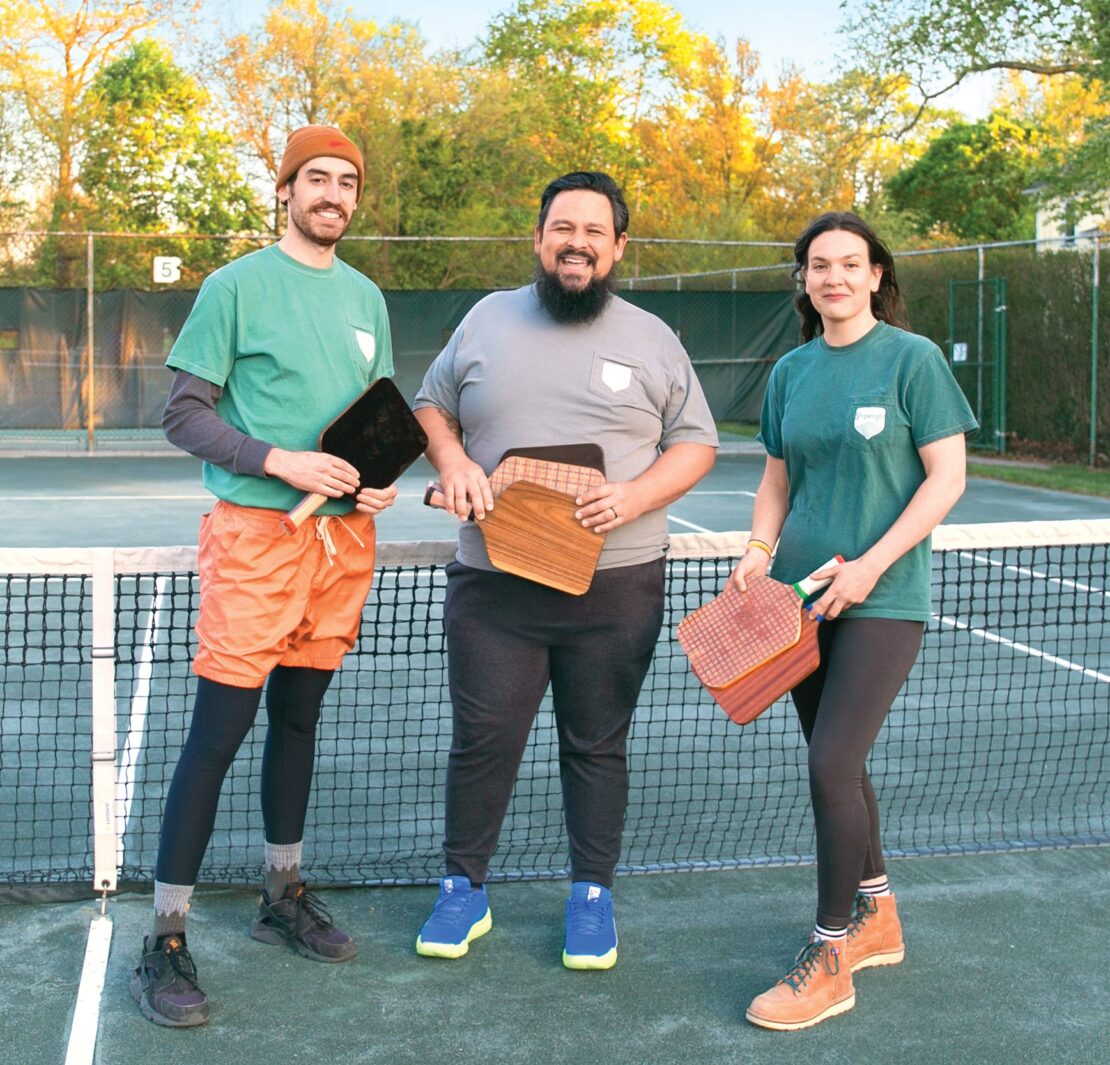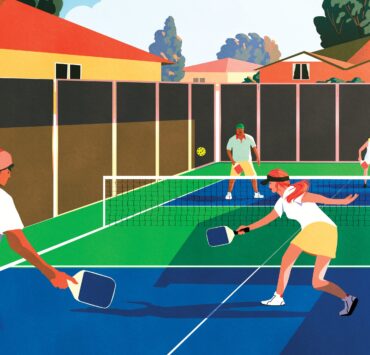AS A SHIPWRIGHT, Jesús Castro builds wooden boats that are fast, sleek, and stunning. So when he and his buddies began playing pickleball, he started imagining how he could use his woodworking skills to make paddles that were just as gorgeous, light, and quick. “We thought we could make a high-performance hybrid wood-composite paddle that was unique and beautiful,” says Castro. After much experimentation, Castro and his business partners—woodworker Madeline McKenna, Tucker Jones, and Sarah Quick, Castro’s wife—recently launched Shipwright Paddles, which sells two models through shipwrightpaddles.com.

“I’M ALWAYS CURIOUS to explore how wood can translate to various scenarios. Previously, I’ve used wood to build my own stand-up paddleboard for triathlons, a guitar, a teardrop-shaped camper, and even my wife’s engagement ring and our wedding bands.


“PADDLES ARE LIKE BOATS—they both use specific timbers with specific properties to serve specific functions. In our paddles, I use resilient softwoods for the handles; tough, steam-bendable timbers for the integrated guards; and dense hardwoods for the skins.
“WOOD IS FORGIVING, so our paddles feel softer. They have a warm, inviting quality. I don’t know if it’s from the familiarity we all have with wood or the fact that four individuals put a lot of time and care into every step of making our paddles, but they have a little soul to them.
“THE BIGGEST DIFFERENCE between our paddles and other materials is the feeling. It’s like the difference between sitting in a composite Adirondack chair and one made of teak. For me, the wood sparks joy, which seems right in line with pickleball’s ethos.”


Shipwright uses a variety of woods—birch, mahogany, walnut, spruce, and cedar—in its paddles.



